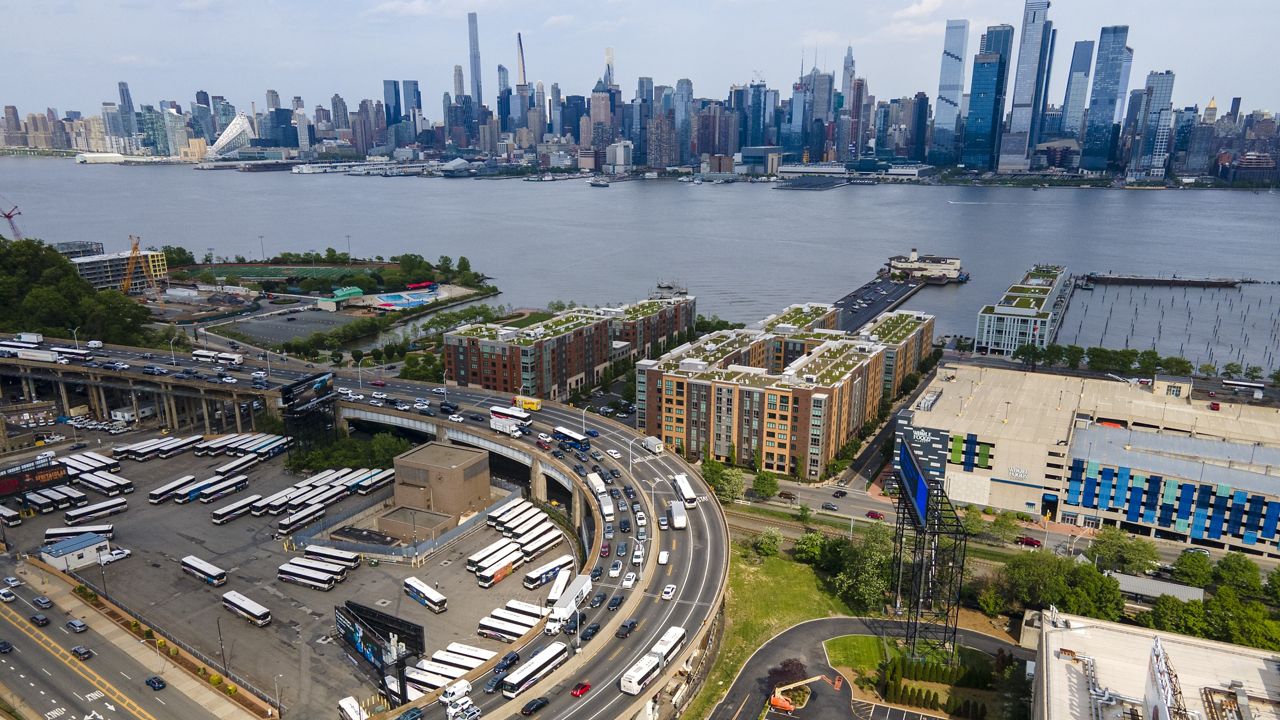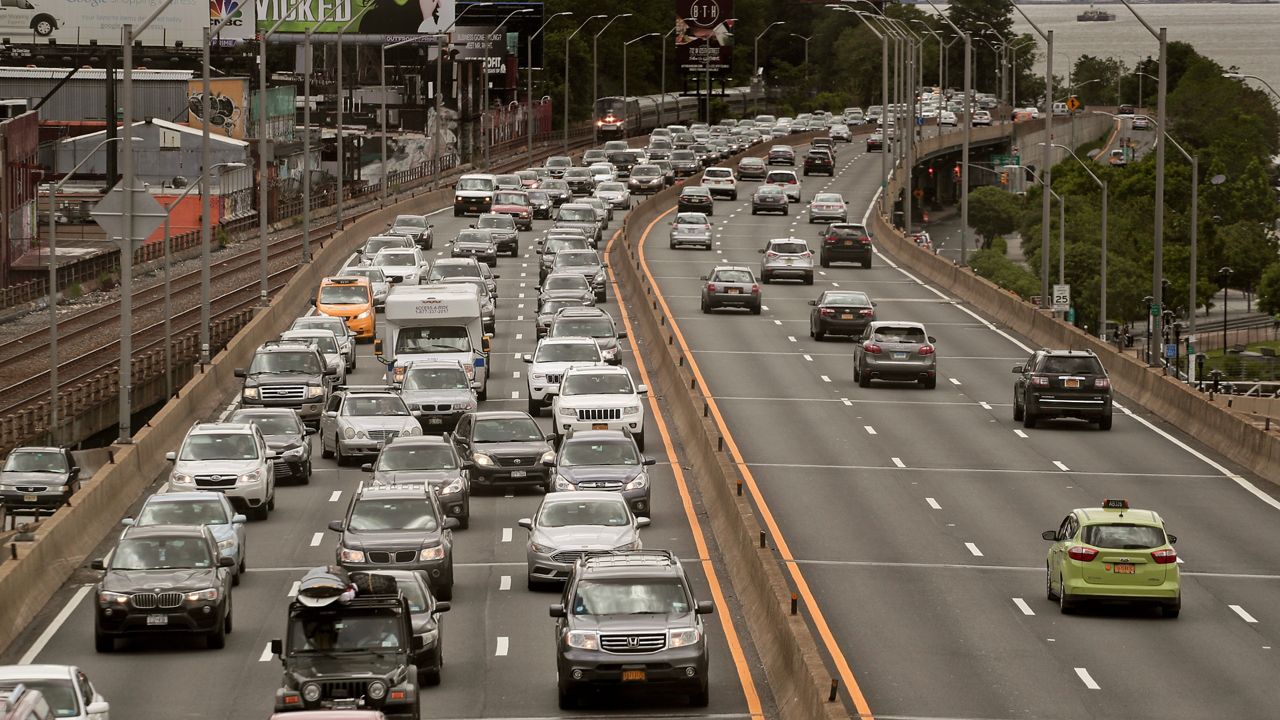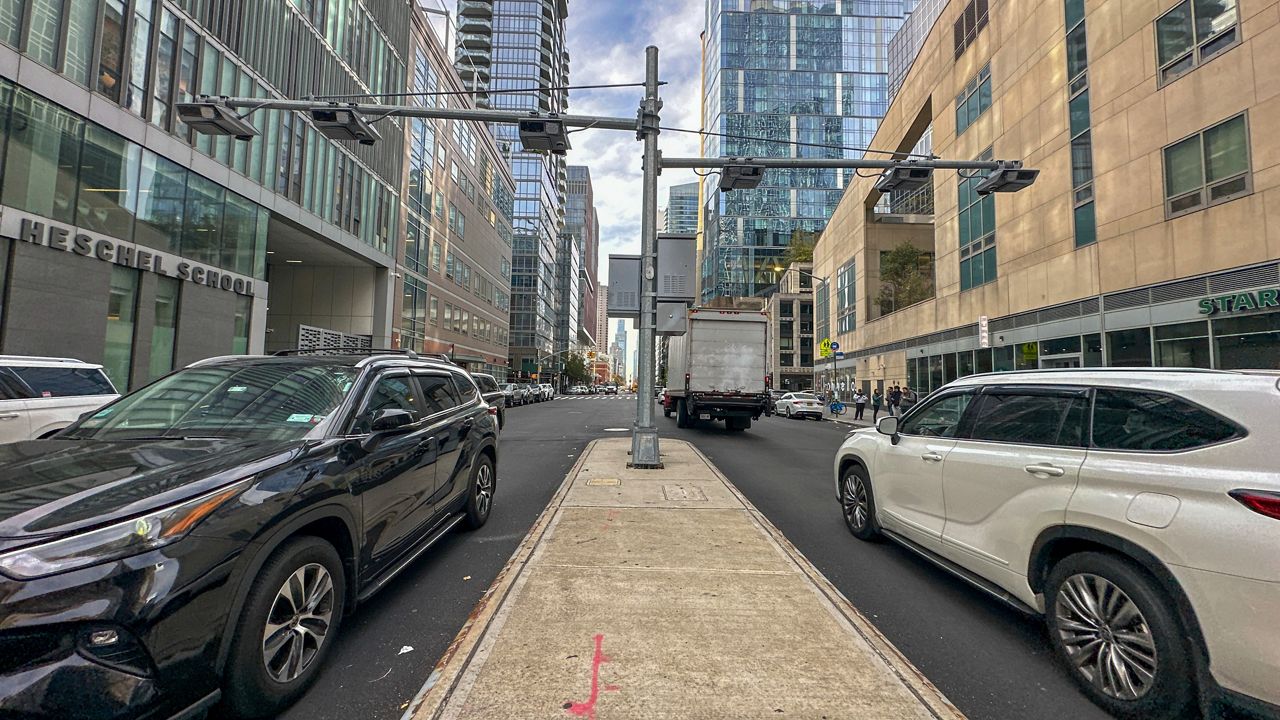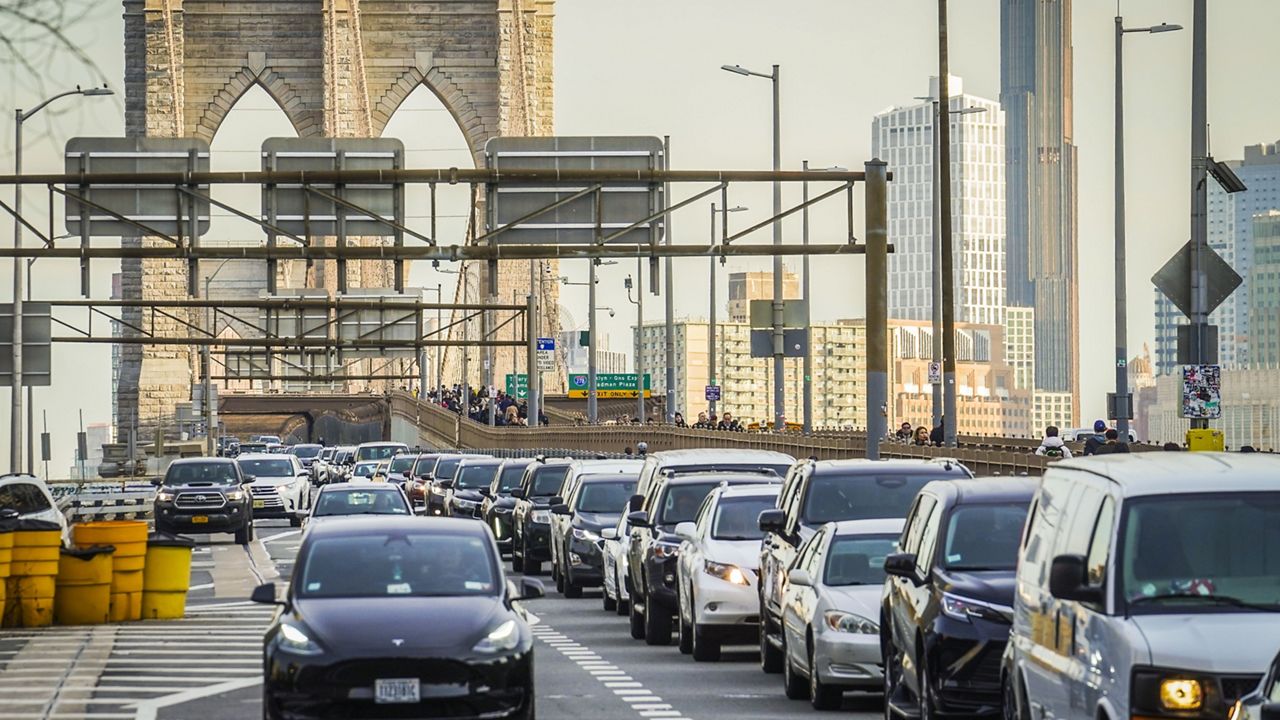A federal judge Wednesday issued a preliminary injunction against U.S. Transportation Secretary Sean Duffy in the battle over congestion pricing, going further than the temporary restraining order issued Tuesday.
The preliminary injunction from Judge Lewis Liman says the plaintiffs — the MTA — have established a likelihood of success on the merits, and defendants — the U.S. Department of Transportation — are enjoined from taking any of the “compliance measures” set forth in Duffy’s April 21, 2025 letter to Gov. Kathy Hochul, which threatened approvals and funding for local transportation projects.
What You Need To Know
- A federal judge Wednesday issued a preliminary injunction against U.S. Transportation Secretary Sean Duffy in the battle over congestion pricing
- The preliminary injunction says the plaintiffs — the MTA — have established a likelihood of success on the merits, and defendants — the U.S. Department of Transportation — are enjoined from taking any of the “compliance measures” set forth in Duffy’s April 21, 2025 letter to Gov. Kathy Hochul, which threatened approvals and funding for local transportation projects
- The MTA board Wednesday voted to re-approve the MTA 2025-29 capital plan after it was initially rejected by legislative leaders who questioned how to fund a $35 billion gap in the $68 billion plan
- Congestion pricing has taken in nearly $216 million gross from the tolls, according to the MTA, with lower-than-expected expenses related to the back-end operation and transit ridership is also up across the board
“I’ll confirm that Judge Liman did issue a preliminary injunction. We just received it. Page Graves, MTA general counsel, said. The judge said yesterday there was a likelihood of success based on the merits and that decision supports that.”
Meanwhile, in a marathon meeting day, the MTA board Wednesday voted to re-approve the MTA 2025-29 capital plan after it was initially rejected by legislative leaders who questioned how to fund a $35 billion gap in the $68 billion plan. All while the last capital plan is also getting funded by congestion pricing.
“Almost exactly a year ago to the day on June 5, we lost control, to some extent, of our capital program, the 2020-2024 capital program. We didn’t know where the money was coming [from], we didn’t know how we were going to adjust to it and we certainly didn’t know if we were gonna have a new capital program. What a difference a year makes. Today we’re celebrating that congestion pricing isn’t just surviving, congestion pricing is thriving,” MTA Chair and CEO Janno Lieber said.
"We're pleased that Judge Liman has put a stop to threats by Washington intended to deprive New Yorkers of the benefits of the program-less traffic, safer streets, cleaner air, and better transit," Lieber added in a statement later Wednesday.
Congestion pricing has taken in nearly $216 million gross from the tolls, according to the MTA, with lower-than-expected expenses related to the back-end operation. The agency says the program is on track to meet the net goal of $500 million a year.
Transit ridership is also up across the board. In April, ridership on subways was up 10% over April 2024, with weekday average ridership topping 4 million.
On buses, ridership was up 18% over last April. Ridership is also up on the railroads and paratransit, with MTA officials touting record on-time performance.
Lieber says, however, it can’t all be attributed to congestion pricing.
As a formality, the capital plan must be approved by the capital plan review board, which is made up of the mayor, the governor, and the two legislative leaders. But the MTA has already started on projects included in the plan.











